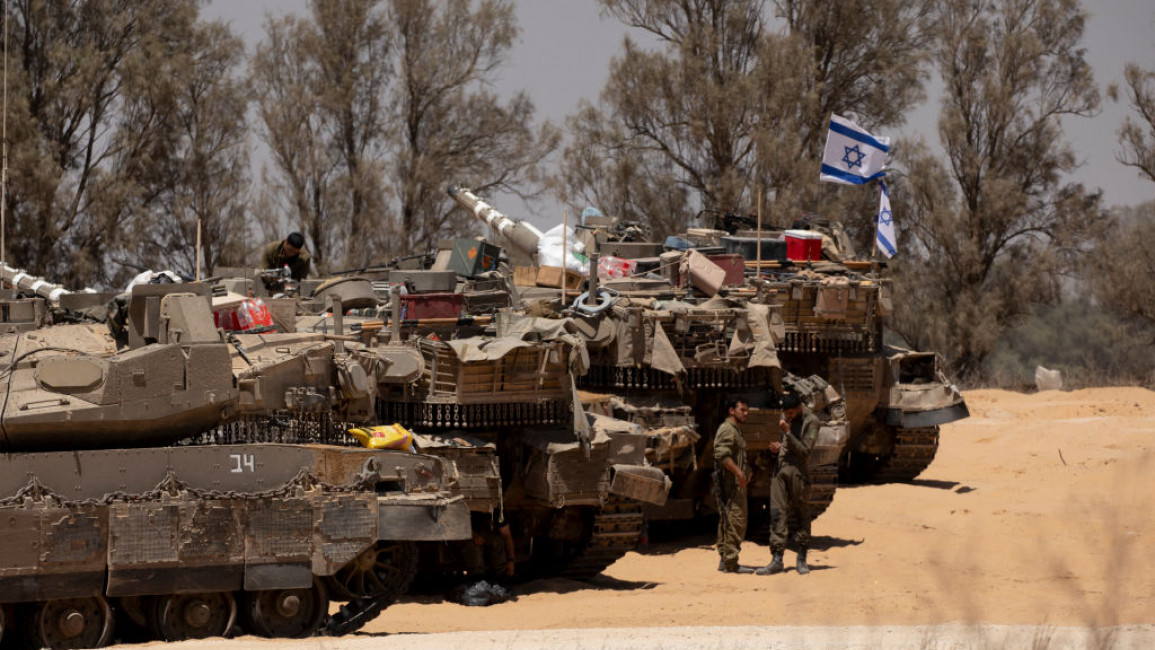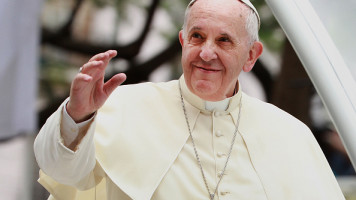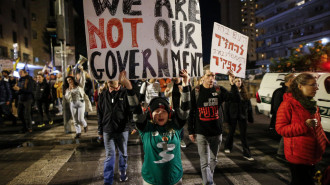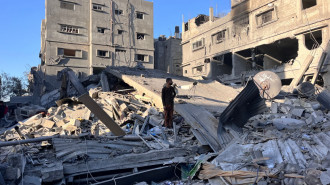Israeli army sends more troops into Rafah as US ignores own red line
The Israeli army has announced that it will send more troops into the southern Gaza Strip city of Rafah, and is intensifying its bombardment, despite international condemnation over attacks which killed over 60 Palestinians this week.
Defying an appeal from the International Court of Justice (ICJ), Israeli tanks advanced into the heart of Rafah this week, after several nights of heavy bombardment which killed at least 45 Palestinians on Sunday and another 21 on Tuesday evening.
Witnesses and local journalists said tanks were stationed at the al-Awda roundabout, a key location. The Israeli military confirmed troops were continuing activities against "terror targets" in Rafah, three weeks after the ground operation started.
The US, however, has said it does not believe Israel has launched a full-scale invasion of Rafah and the attacks do not constitute a major offensive or cross any US red lines.
US President Joe Biden said earlier this month he would limit weapons supplies to Israel if it entered the "population centres" of Rafah, where hundreds of thousands of forcibly displaced Palestinians are sheltering.
However, following Sunday's attack, which sparked a fire that engulfed displacement camps and burned people alive, White House spokesperson John Kirby told reporters an offensive in Rafah would have to involve "large numbers of troops in columns and formations in some sort of coordinated manoeuvre against multiple targets on the ground."
"That is a major ground operation, we have not seen that," he added.
Kirby added that Israel’s attacks on Tuesday mainly occurred in a corridor on the outskirts of the city, however, videos posted on social media and analysed by BBC Verify showed multiple people with serious wounds, near tents between Rafah and the Al-Mawasi area, which is located near a humanitarian zone.
The Pentagon also said it considered Israel’s assault on Rafah as "limited in scope" and was waiting for the Israeli military to conduct its investigation into Sunday’s strike before providing further comment.
Israel called the attack a "tragic accident", with a military spokesperson later stating an airstrike alone could not have caused the fire. The Israeli military also said it was investigating the possibility that the fire was caused by an explosion of weapons allegedly stored by Hamas in the vicinity of the area.
Another statement from the Israeli army later said: "Contrary to the reports from the last few hours, the IDF did not strike in the humanitarian area in Al-Mawasi".
Alonso Gurmendi, a lecturer of international relations at Kings College London highlighted that the attack came just after the ICJ ordered Israel to halt its attacks.
"Regardless of whether it satisfies the US’s red line or not, this is still a violation of the ICJ’s order," he told The New Arab.
The New York Times reported on Wednesday that the bombs used to kill civilians in Rafah were made in the US, citing visual evidence it reviewed of munition debris at the strike location.
The debris came from a GBU-39, a bomb designed and manufactured in the US.
Israel has come under increasing global criticism for its war on Gaza, which is now in its eighth month. At least 36,171 Palestinians have been killed and 81,420 wounded, while entire neighbourhoods have been levelled.
Israel’s bombardment of the besieged enclave has wreaked havoc on the Strip’s infrastructure and plunged it into a deep humanitarian crisis.







 Follow the Middle East's top stories in English at The New Arab on Google News
Follow the Middle East's top stories in English at The New Arab on Google News


